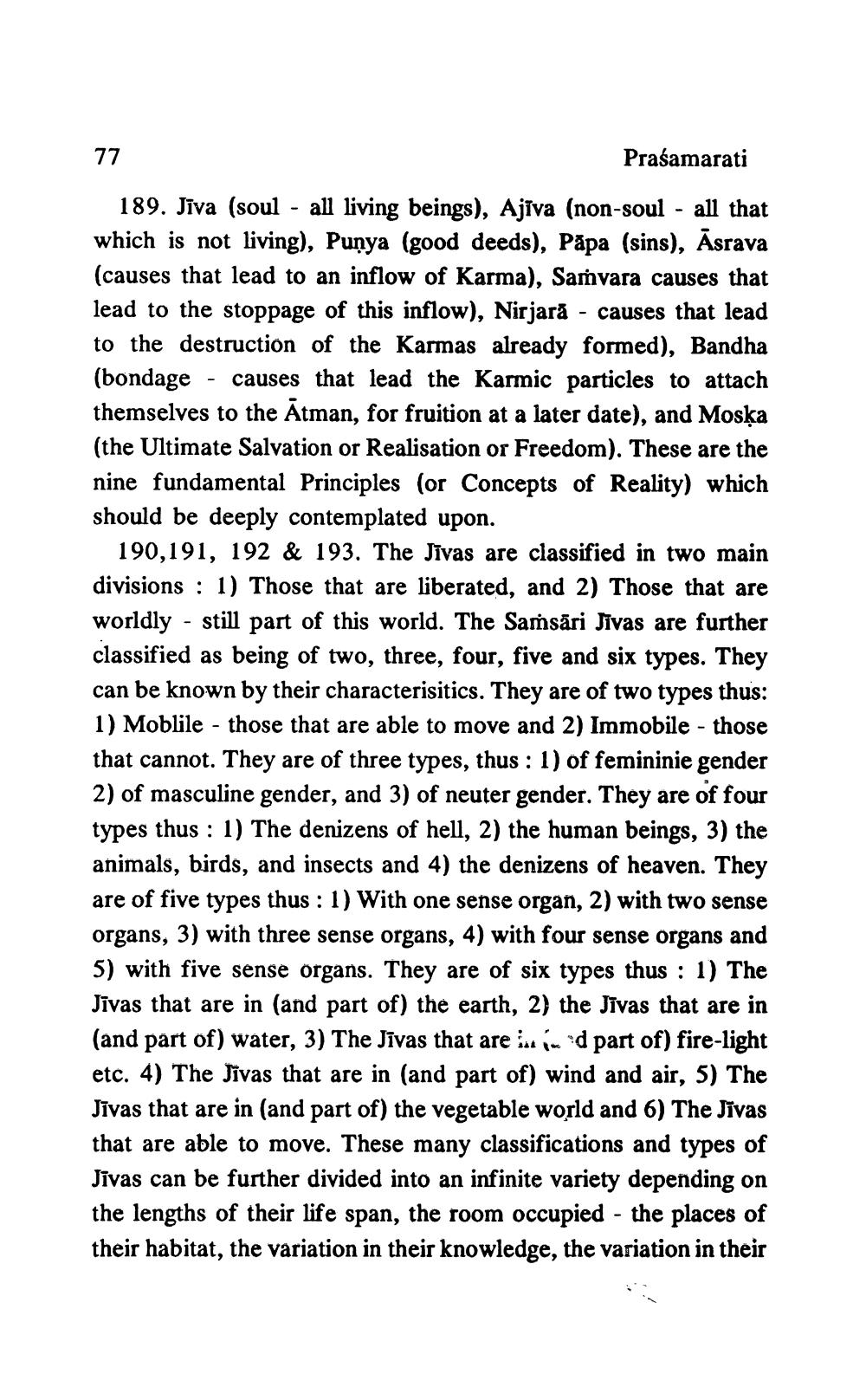________________
77
Praśamarati 189. Jīva (soul - all living beings), Ajīva (non-soul - all that which is not living), Punya (good deeds), Papa (sins), Asrava (causes that lead to an inflow of Karma), Samvara causes that lead to the stoppage of this inflow), Nirjară - causes that lead to the destruction of the Karmas already formed), Bandha (bondage - causes that lead the Karmic particles to attach themselves to the Atman, for fruition at a later date), and Mosķa (the Ultimate Salvation or Realisation or Freedom). These are the nine fundamental Principles (or Concepts of Reality) which should be deeply contemplated upon.
190,191, 192 & 193. The Jīvas are classified in two main divisions : 1) Those that are liberated, and 2) Those that are worldly - still part of this world. The Saṁsāri Jīvas are further classified as being of two, three, four, five and six types. They can be known by their characterisitics. They are of two types thus: 1) Moblile - those that are able to move and 2) Immobile - those that cannot. They are of three types, thus : 1) of femininie gender 2) of masculine gender, and 3) of neuter gender. They are of four types thus : 1) The denizens of hell, 2) the human beings, 3) the animals, birds, and insects and 4) the denizens of heaven. They are of five types thus : 1) With one sense organ, 2) with two sense organs, 3) with three sense organs, 4) with four sense organs and 5) with five sense organs. They are of six types thus : 1) The Jīvas that are in (and part of) the earth, 2) the Jīvas that are in (and part of) water, 3) The Jīvas that are in n d part of) fire-light etc. 4) The Jivas that are in (and part of) wind and air, 5) The Jīvas that are in (and part of) the vegetable world and 6) The Jīvas that are able to move. These many classifications and types of Jivas can be further divided into an infinite variety depending on the lengths of their life span, the room occupied - the places of their habitat, the variation in their knowledge, the variation in their




